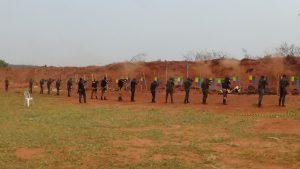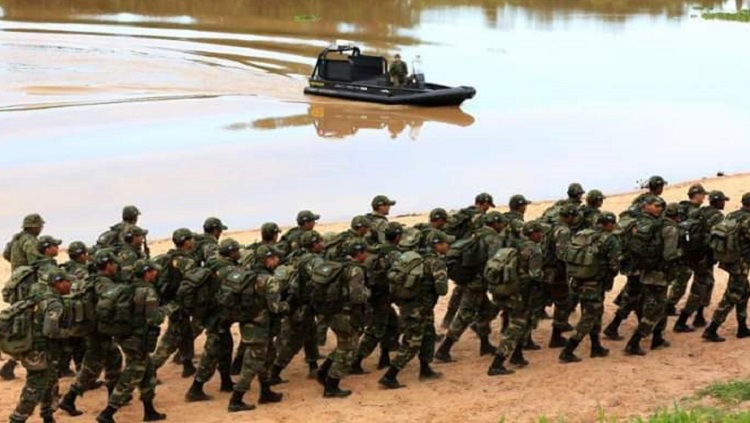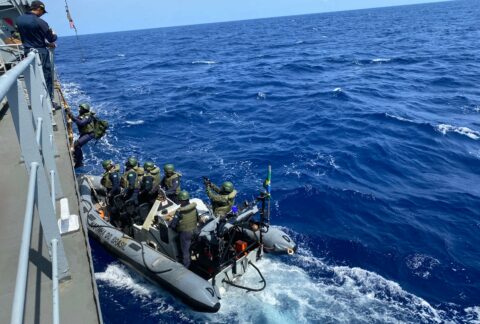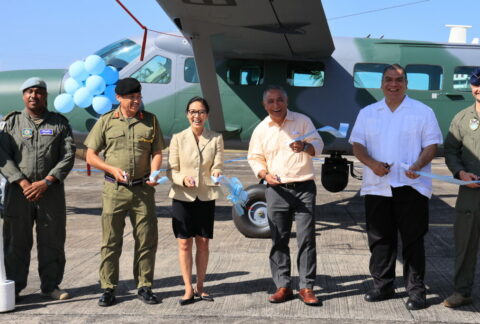On December 16, 2019, Brazil launched its first Integrated Border Operation Center (CIOF, in Portuguese) in Foz do Iguaçu, in the state of Paraná, as part of the VIGIA Program. The Ministry of Justice and Public Security (MJSP, in Portuguese) created the program in April, which the Secretariat of Integrated Operations (Seopi, in Portuguese) implemented.
According to Wagner Mesquita, general coordinator of Seopi’s Fight against Organized Crime, CIOF is a command and control office for overt operations, to generate and share information, direct coordinated actions, and increase the use of technological tools through satellites, cameras, sensors, and drones.
The VIGIA Program brings together for the first time the work of military institutions and public security agencies to protect the nearly 10,570 miles of border between 11 Brazilian states and 10 South American countries, to increase the control and fight against transborder crimes, such as smuggling, drugs, arms, and ammunition trafficking. Service members from the three forces work alongside police agencies and other federal government institutions.
VIGIA includes the acquisition of cutting-edge equipment, personnel training by national and international organizations, and the installation of operational bases with integrated systems. Between April and December 2019, the program contributed to the seizure of 28.5 million smuggled cigarettes, 412 vehicles, 57.6 tons of drugs, 77 vessels, and 16 tons of pesticides.
“It’s important to point out that this is the first joint effort from the institutions that operate directly on the border, with integrated work between public security agents and institutions. That’s why we had such positive results,” MJSP’s Social Communication Department told Diálogo.

American inspiration
Throughout 2019, VIGIA held 13 classes taught by different national and foreign organizations to train its members. In November, U.S. Special Operations Command South, through VIGIA, supported classes on Operational Design and Joint Planning and Tactical Pre-Hospital Care. Members of U.S. Army’s Seventh Special Forces Group taught the classes to military, civilian, and federal police officers. Since the start of the program, 350 professionals have been trained.
The United States also inspired CIOF, which based its surveillance after the guidelines that followed 9/11. CIOF’s headquarters is Foz do Iguaçu, a strategic location because of its border with Paraguay, and as one of the country’s main import and export free-trade areas. Foz do Iguaçu is also home to the Itaipú Binational Hydroelectric Dam, which generates 15 percent of the electricity consumed in Brazil and 90 percent of that consumed in Paraguay. CIOF operates from a 6,458 square-mile area at the Itaipú Technological Park.
“It’s as though there was a permanent task force to prevent and take strong actions against border crimes (smuggling, drugs and arms trafficking, terrorism funding, and protection of important country structures). For this reason, Itaipú was strategically selected,” said Minister of Justice and Public Security Sérgio Moro, at the center’s inauguration.
“The launch of this center will revolutionize the overt operations model. Criminal organizations became stronger, and began using modern logistics resources, and now MJSP is investing in new work methods, especially when it comes to integrated actions and information sharing,” Mesquita said at CIOF’s inauguration.









